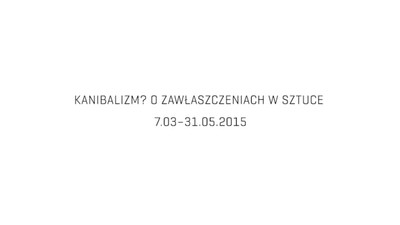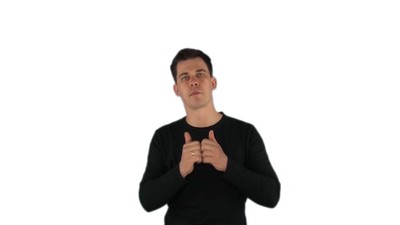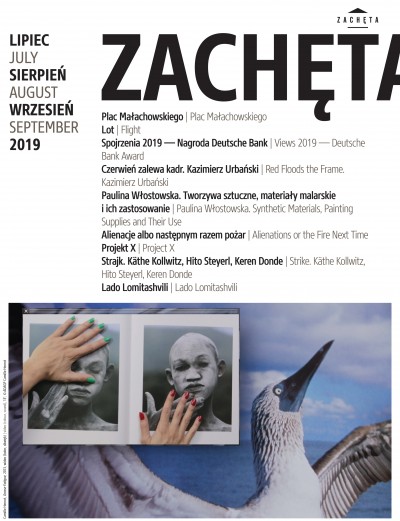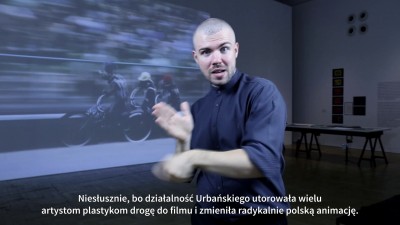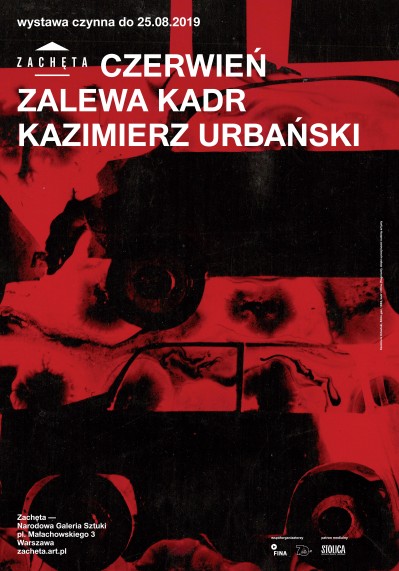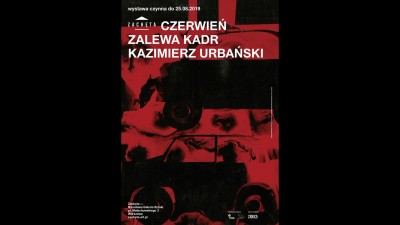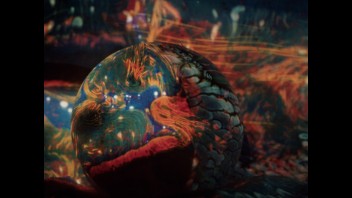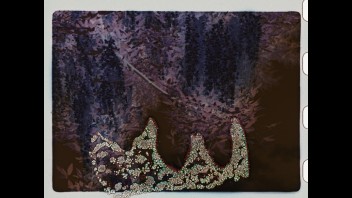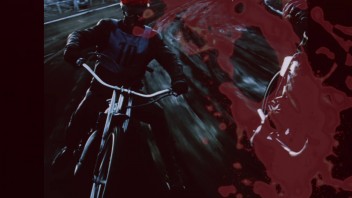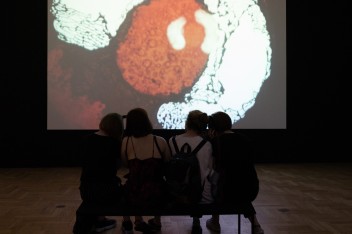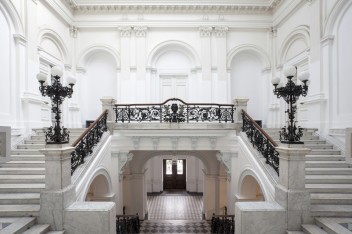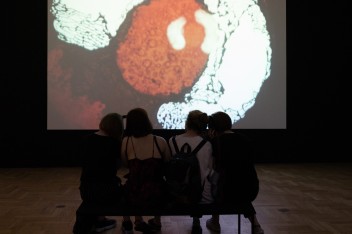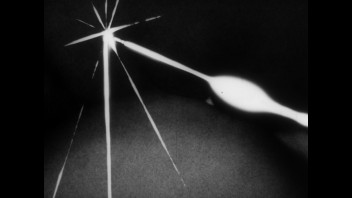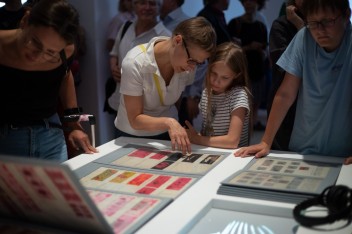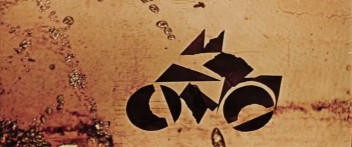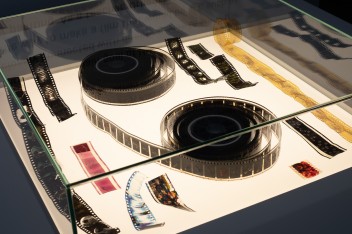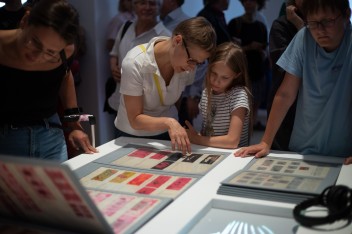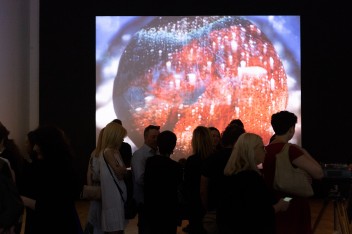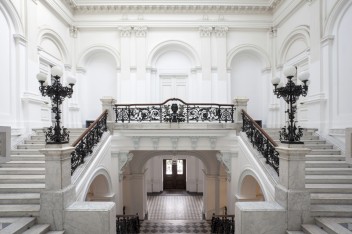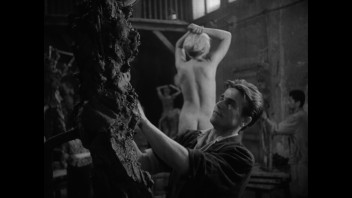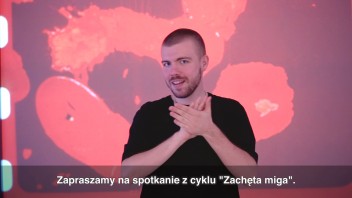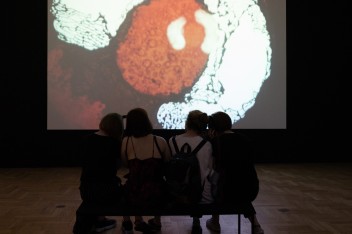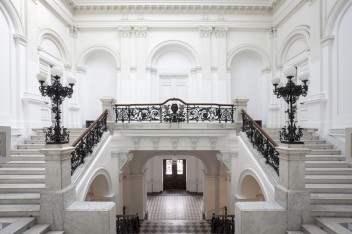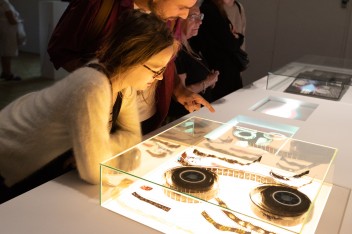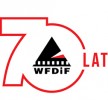Red Floods the Frame Kazimierz Urbański
18.06 – 25.08.2019 Red Floods the Frame Kazimierz Urbański
Zachęta – National Gallery of Art
curator: Joanna Kordjak
academic cooperation: Hanna Margolis
collaboration: Michał Kubiak
special participation: Wojciech Bąkowski
exhibition design: Paulina Tyro-Niezgoda
exhibition production: Anna Muszyńska & team
digitalization of films for the exhibition: Halszka Brzóska, Iga Harasimowicz, Łukasz Janik, Bartłomiej Trzeszkowski, Katarzyna Waletko (FINA)
co-organisers: National Film Archive — Audiovisual Institute, Documentary and Feature Film Studios
An experimenter in the field of cinematographic techniques and a film education pioneer, originator and founder of the Film Drawing Studio at the Academy of Fine Arts in Kraków (1957–1972) — the first such institution in the world offering education in animation at a higher artistic school.
Kazimierz Urbański is one of the key figures in the history of Polish animated film. However, he is unjustly known only for his animation projects. The exhibition presents both his original filmmaking output (including not only animated films, but also documentaries), his close relations with the avant-garde music of the time (his cooperation with composers and sound engineers from the Polish Radio Experimental Studio is an important theme here), and various aspects of his closely related pedagogical activity. Urbański’s artistic biography is located in the context of the cultural policy of Communist Poland. Co-operation with state-run companies producing documentaries, educational films and animations for children gave him an opportunity to pursue his own cinematic experiments. Urbański actively worked in the peripheries of Polish film production, as part — and, at the same time, against the current — of state-owned institutions.
His concept of film as ‘cineart’ — an experiment that treated ‘matter in motion’ as the field of exploration and real content (hidden behind the plot) — was completely out of line with the strategies of Polish cinematography of the time. In turn, in the realities of the Academy of Fine Arts in Kraków in the mid-1950s (where film and photography were not considered to be disciplines of art in their own right), the project of creating a pioneer educational unit that taught artistic film experiment as a subject seemed completely unreal. However, thanks to his determination, Urbański managed to establish the Film Drawing Studio at the Academy’s Department of Stage Design in 1957. Although initially inconspicuous, it had a significant impact on Polish cinema in the next decade. Moreover, Urbański’s efforts led to the establishment of the Kraków branch of the Studio of Film Miniatures in Warsaw (affiliated with the FDS) in 1966, which he envisioned as a studio-cum-laboratory, and which he informally called ‘a laboratory melting pot’.
Urbański’s artistic output is located on the borderline between film and art. In the Poland of the 1950/60s, these two areas were actually separated from each other. This is why his art functioned on the margins of the Polish film discourse, and at the same time it did not make it to the artistic circulation of the period. However, his efforts, which lay the ground in Polish animation for visual artists and led to the redefinition of the discipline, changed this situation irrevocably. As a teacher, he shaped several generations of animation artists in Poland. The exhibition presents selected films by Wojciech Bąkowski, a graduate of the Poznań Animated Film Studio co-founded by Kazimierz Urbański.
The exhibition is accompanied by Hanna Margolis’s book Animacja in PRL w latach 1957–1968. Ukryty projekt Kazimierza Urbańskiego [Animation in the People’s Republic of Poland in 1957–1968. Kazimierz Urbański’s hidden project] published by the Wydawnictwa Uniwersytetu Jagiellońskiego.
Red Floods the Frame
Kazimierz Urbański
18.06 – 25.08.2019
Zachęta – National Gallery of Art
pl. Małachowskiego 3, 00-916 Warsaw
See on the map
Godziny otwarcia:
Tuesday – Sunday 12–8 p.m.
Thursday – free entry
ticket office is open until 7.30 p.m.


